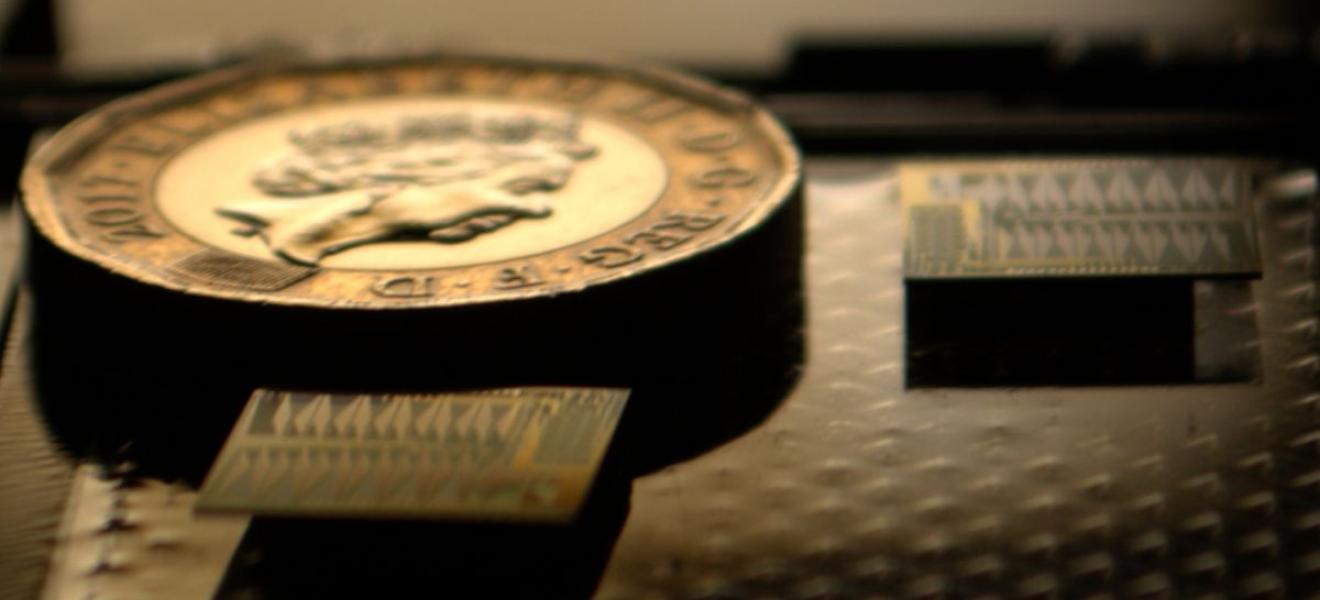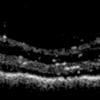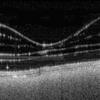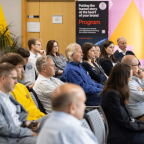
Bristol startup achieves breakthrough in eye scanning technology
Bristol-based startup Siloton Limited has acquired a sub-surface image of the retina in a synthetic eye, using its revolutionary photonic chip technology. The synthetic eye, more commonly known as a retinal phantom, is anatomically analogous to a real eye and is used to calibrate clinical devices.
The development will make it easier to monitor key parts of the eye affected by macular disease.
The image was taken with Siloton’s first-generation optical coherence tomography (OCT) chip, Akepa. OCT is a non-invasive imaging technique akin to a high-resolution ultrasound, and is the gold standard for diagnosing and monitoring eye disease. At present, it can only be accessed through hospitals and high-end optometrists, because the optical components inside lead to systems that cost tens of thousands of pounds and take up an entire desk. Akepa compresses a tabletop-worth of heavy, expensive and fragile optical components onto a single piece of material smaller than a £1 coin.
As the first OCT image to be taken with Akepa, this already allows for measurements of retinal layer thicknesses. These are a key marker of disease progression in treatable retinal diseases such as wet age-related macular degeneration, retinal vein occlusion and diabetic macular oedema, all of which affect millions of people worldwide.
In reaching this milestone, Siloton brings compact and affordable home-monitoring within arms’ reach for some of the most commonly diagnosed conditions in ophthalmology, the busiest outpatient speciality in the NHS.
Cathy Yelf, Chief Executive of national sight loss charity the Macular Society, said: “We’re delighted to see that Siloton has acquired its first OCT image. We’re excited about this technology, which could make a real difference to people living with macular disease, allowing them to monitor their condition from home. We look forward to continuing to work with the team at Siloton while they continue to develop this technology.”
Dr. Jeff Hogg, Ophthalmology Registrar at NHS Health Education North East, Honorary Research Fellow at Moorfields Eye Hospital NHS Foundation Trust and NIHR Doctoral Fellow at Newcastle University, added: “This step change in the miniaturisation of OCT can help us to unlock the full value of the progress we already see in ophthalmic telemedicine, workforce mobilisation and patient access.”
Further refinement of the image is ongoing, the results from which will feed into the design of the second-generation Blue Jay chip, as well as Siloton’s wider OCT system.









